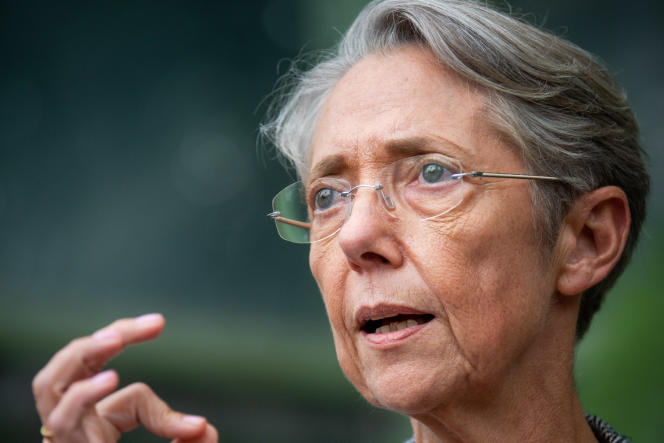It was a first for Elisabeth Borne. The Prime Minister had never presented herself to the votes of the French until Sunday, June 12, on the occasion of the first round of the legislative elections. Ms. Borne finally won in the 6th constituency of Calvados, in the heart of the Normandy bocage. The head of government will face the candidate of the New People’s Ecological and Social Union (Nupes), Noé Gauchard, in the second round on Sunday, June 19.
Originally from Livarot, she defended herself during the legislative campaign from being parachuted where La République en Marche had obtained one of its best results in 2017 with Alain Tourret, outgoing deputy who does not represent himself. She notably faced a young person invested by the New People’s Ecological and Social Union, Noé Gauchard, and a candidate from the National Rally, Jean-Philippe Roy. In the first round of the presidential election, Emmanuel Macron came out on top, with 30.8%, of the votes in the 6th constituency of Calvados.
Baptism by fire
The only woman to hold such a responsibility under the Fifth Republic since the ephemeral passage of Edith Cresson in 1991-1992, this 61-year-old polytechnician is a woman of files, but also an assumed “techno”, without political weight so far. A former adviser to Lionel Jospin, notably during his time at Matignon, and former director of Ségolène Royal’s cabinet at the Ministry of the Environment, the 60-year-old is a member of La République en Marche and of the Territories of Progress microparty, located on the left flank of the majority.
Appointed Minister of Transport upon the election of Emmanuel Macron, in 2017, the engineer of the Ponts et Chaussées was promoted two years later to the ecological transition, before obtaining, in 2020, the labor portfolio. At Matignon, Ms. Borne will be responsible for ecological planning, the preservation of purchasing power, the search for full employment, pension reform, not to mention those of education and health.
Barely named, Elisabeth Borne had received her baptism of fire under heavy criticism from Jean-Luc Mélenchon and Marine Le Pen, seeing her as the embodiment of “social mistreatment” and “social rampage”, an allusion to the reform of unemployment insurance which she carried out against the advice of the unions.

















